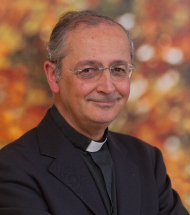The University of Navarra launches a new edition of three online programmes specialization in Canon Marriage Law
They are aimed at persons working in ecclesiastical courts and professionals with programs of study at Canon Law or Civil Law

The School of Canon Law at the University of Navarra has launched a new edition of the three online programs of specialization in Canon Marriage Law.. They are aimed at anyone, from anywhere in the world, with programs of study at Civil Law or Canon Law with professional experience in issues related to matrimonial causes: judges, lawyers, notaries, counselors and mediators, psychiatrists, counselors, defenders of the bond or institutions and organizations working with the family. The deadline for apply for the Admissions Office ends on Sunday, December 1.
After the reform introduced by Pope Francis in the rules and regulations of the Church Law to judge on the nullity of marriages, the demand for training in these matters has increased significantly. Juan Ignacio Bañares, director of the online courses of specialization in Canon Marriage Law assures that these courses "allow a serious and accessible update to so many professionals who work in these matters and who do not have the possibility or the time to move for a long time to a place where they can study programs of study of this style". He also affirms that "it is a way of responding to the Pope's call to facilitate these works and thus contribute to improve the quality and the Structures of the family pastoral, and the celerity in the development of the matrimonial processes".
The programs will start on January 15 and will run from January to June. Each of them has six subjects, which include foundation subjects and others of a more practical nature, distributed in 30 credits.
It is planned to be carried out over two years to facilitate the academic load. Its online nature allows the student to study and work in a flexible way. Although the courses are taught in Spanish, the students' work can be carried out in five languages, depending on the different subject areas
